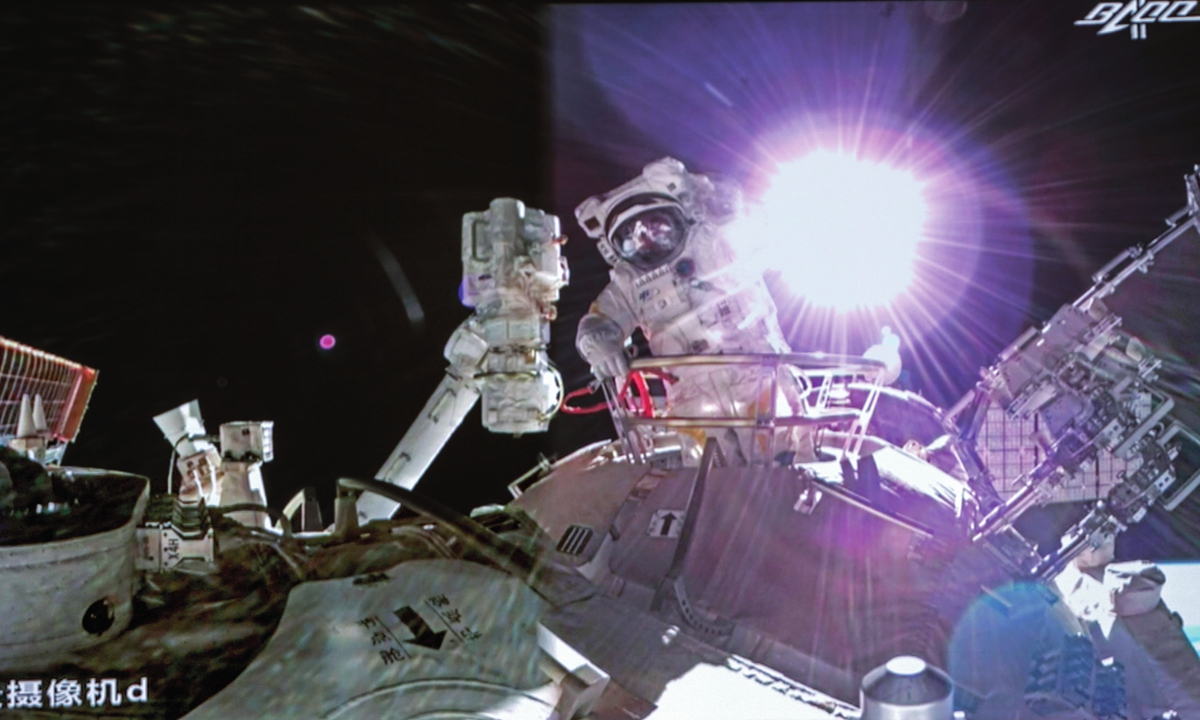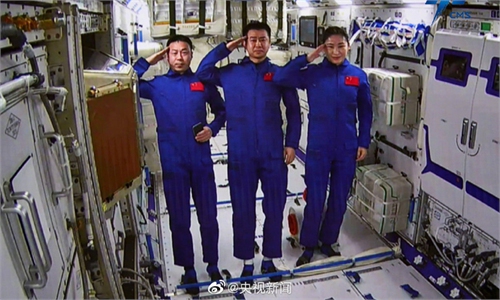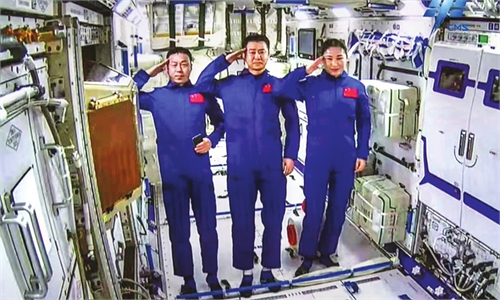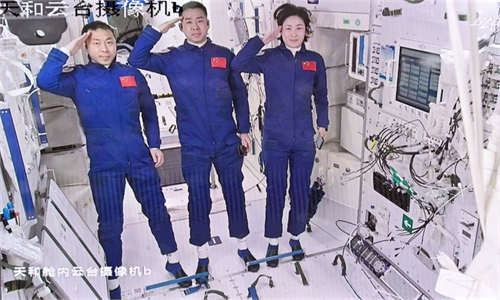
Shenzhou-13 taikonaut Ye Guangfu exits China's orbiting space station core module Tianhe on an extravehicular activity (EVA), the China Manned Space Agency said on December 26, 2021. Ye and fellow crew member Zhai Zhigang were conducting the second spacewalk of the Shenzhou-13 mission. Photo: Xinhua
China's space station with the Shenzhou-14 crew in orbit now has the capacity to produce more than 90 percent of its drinking water through recycling, with less than 10 percent supplied from the ground, said the China Manned Space Agency (CMSA).
The recycling is realized by the environmental control and life support system installed in the space station, which comprises six subsystems respectively for oxygen production by water electrolysis, carbon dioxide removal, harmful gas removal, urine treatment, water treatment, and water production with carbon dioxide and hydrogen.
With the purpose to create an Earth-like habitable living environment in space, the environmental control and life support system regulates the air pressure, oxygen content, wind speed, temperature and humidity, among others, inside the spacecraft, the CMSA said.
It reduces noise in the cabin with sound absorbing covers, sound insulation panels, vibration isolators and shock pads.
It also collects the sweat and urine of astronauts and purifies them into drinking water, and produces oxygen by electrolyzing recycled water.
The subsystem for producing water by exhaled carbon dioxide and hydrogen from water electrolysis was installed in the space station and tested by the Shenzhou-14 crew with ground assistance.
The new subsystem can help recycle an extra kilogram of water per day, raising the proportion of drinking water produced by recycling from 80 percent to over 90 percent.
As a key technology for China's manned missions, the environmental control and life support system has ensured the safety of astronauts in orbit and helped build a livable space station, said the CMSA.
Xinhua



